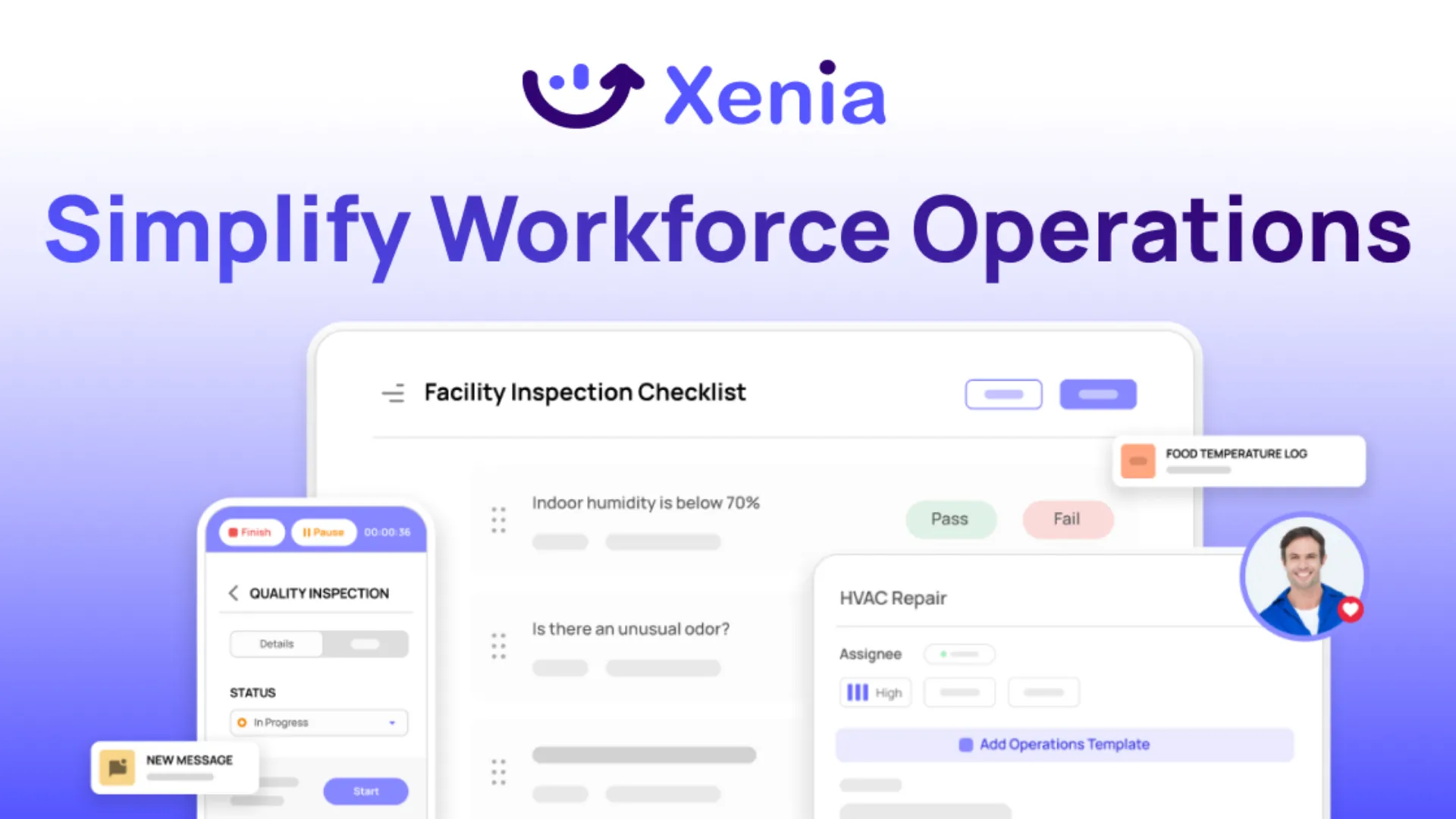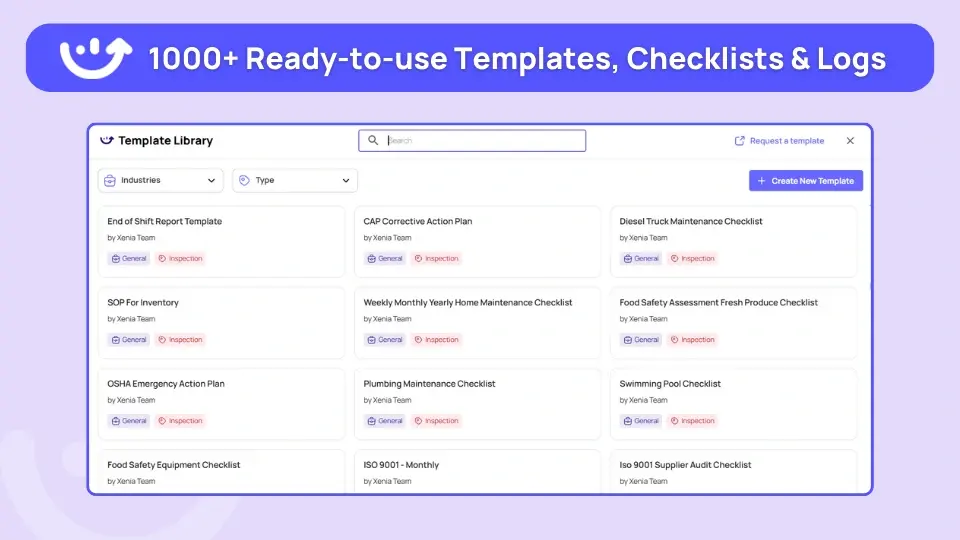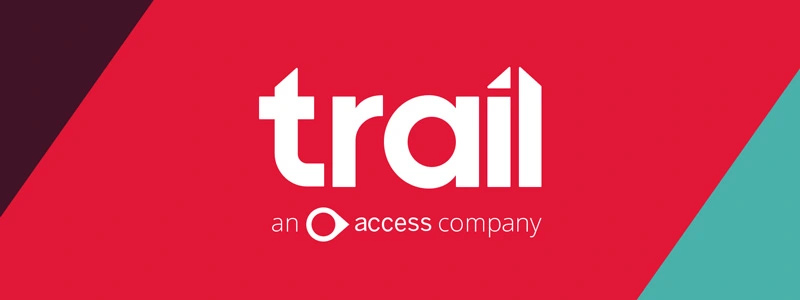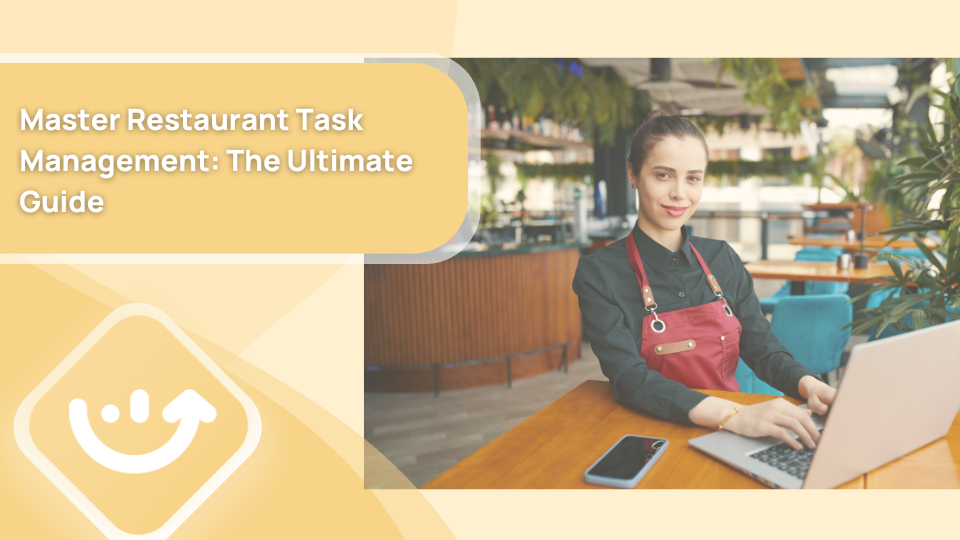Restaurant managers spend an average of 3.14 hours per week just on employee scheduling. That's nearly half a workday lost to a single operational task.
Your restaurant task management system directly impacts your profit margin. Most restaurant management teams focus heavily on the people side of operations. But when your scheduling is chaotic, your opening procedures are inconsistent, or your food safety checklists fall through the cracks, the business suffers real consequences.
Modern restaurant task management software can cut that scheduling time by 70% or more. More importantly, they eliminate the errors that cost you money, missed temperature logs, incomplete closing procedures, and forgotten equipment maintenance.
This guide breaks down everything you need to know about restaurant task management, from core challenges to the best restaurant task management software available in 2026.
.svg)

Priced on per user or per location basis
Available on iOS, Android and Web
A Quick Overview of the Best Restaurant Task Management Apps
1. Xenia - The Complete Restaurant Task Management App
Xenia handles the complete spectrum of restaurant task management. From daily line checks to equipment maintenance to multi-location audits.

What Xenia Does for Restaurants:
- Opening & Closing Checklists: Deploy standardized opening and closing procedures across all locations. Staff complete them on mobile devices with photo proof. Managers get instant alerts if critical steps are missed.

- Food Safety Compliance: Digital temperature logging with automated 24/7 monitoring through Bluetooth sensors. Staff can't backdate entries. Failed temp checks automatically trigger corrective actions. Complete audit trail for health inspections.
.webp)
- Kitchen Task Management: Assign prep lists, cleaning schedules, and equipment checks to specific roles or individuals. Track completion in real-time. See which stations are ready before service starts.
.webp)
- Equipment Maintenance: Schedule recurring maintenance for hoods, ovens, walk-ins, and other equipment. Create work orders when things break. Track repair history for each piece of equipment. Get preventative maintenance reminders before failures happen.
- Multi-Location Visibility: District managers see completion rates across all restaurants from one dashboard. Compare performance between locations. Identify which stores need support. Deploy new procedures instantly to all locations.
- Staff Training Integration: New hires access training materials and SOPs directly in the app. QR codes on equipment link to training videos. Knowledge checks verify understanding before staff work independently.
Why Restaurant Operators Choose Xenia:
It works offline. Your team completes tasks even when WiFi is spotty in the kitchen or walk-in.
It integrates with scheduling systems like 7shifts. When new employees are added to the schedule, they automatically get Xenia access with the right permissions for their role.
The Xenia app has 1,000+ restaurant-specific templates. Opening procedures. Food safety logs. Line checks. Equipment maintenance schedules. Health inspection prep. Deploy them immediately or customize for your brand.
District managers at restaurant groups like Demos Restaurants and Shucking Good Hospitality use Xenia to maintain consistency across locations without constant travel.
The mobile-first design makes task management for restaurants easier than ever. Your deskless kitchen staff, servers, and shift leads can complete tasks from anywhere in the restaurant. No running to the office to check a clipboard.
2. Trail

Trail is a straightforward task management platform that replaced paper processes for restaurants. Strong presence in the
UK and European markets. Known for getting teams up and running quickly.
Key Features:
- Live Task Scheduling: Schedule tasks by day, week, or month with automatic reminders. Tasks get assigned to the right people at the right time based on shifts. Built on a simple planning system.
- Compliance & Audit Trails: Complete historical record of all tasks with time and date stamps. Maintains digital records for health inspections. Tracks who completed what and when for accountability.
- Exception Tracking: Real-time alerts when critical tasks are missed. Activity feed shows issues across all sites without phone calls. Focuses on flagging problems before they become compliance issues.
Trail uses a web-based platform (not a native mobile app, though they've added offline functionality). Pricing starts at around £38/month. The interface is clean and requires minimal training.
Best for: Small to mid-sized restaurant groups (5-30 locations) primarily in UK/Europe who want quick deployment without complex features.
3. MaintainIQ

MaintainIQ was built specifically for restaurants and c-stores. Focuses on making daily task management and equipment maintenance simple for multi-unit operators.
Key Features:
- Restaurant-Specific Templates: Digital checklists designed specifically for restaurant operations. Opening duties, closing procedures, food safety logs, equipment checks. All pre-built for restaurant workflows.
- Preventative Maintenance Automation: Automate recurring maintenance schedules for kitchen equipment. Never miss hood cleanings, refrigeration service, or equipment inspections. Get automatic reminders before tasks are due.
- Real-Time Dashboard Visibility: Managers see what's happening across all locations from their phone. Track which tasks are completed, missed, or delayed. End-of-day reports show performance across the portfolio.
MaintainIQ emphasizes ease of use. Managers report saving 3-10 hours per week. The platform is specifically designed for multi-unit restaurant operators managing daily operations and repairs.
Pricing starts at $99/month per location with unlimited users.
Best for: Multi-unit restaurant operators (10-100+ locations) who need straightforward task management with strong equipment maintenance features.
What is Restaurant Task Management?
Restaurant task management is how you plan, assign, track, and verify the hundreds of daily tasks that keep your operation running. It covers everything from opening and closing checklists to equipment maintenance schedules to food safety procedures.
The goal is simple: make sure the right tasks happen at the right time, every time, across every location.
Good task management for restaurants means your kitchen staff knows exactly what prep work needs to be done before service. Your FOH team has clear side-work responsibilities. Your managers can verify that critical procedures like temperature logs and cleaning protocols are actually being completed, not just signed off on a clipboard.
When task management breaks down, you get confusion. Staff members don't know what's expected. Critical procedures get skipped. Quality becomes inconsistent. Customer satisfaction drops.
Why Restaurant Task Management Matters More Than Ever
The restaurant industry runs on razor-thin margins. The National Restaurant Association reports that the average restaurant profit margin hovers around 3-5%. At those margins, operational inefficiency isn't just annoying, it's dangerous.
Here's what poor task management actually costs you:
- Staff Turnover: The restaurant industry has 75% annual turnover rates. Disorganized operations where staff don't know what's expected drive good employees away. The Center for Hospitality Research at Cornell found that replacing each employee costs $5,864 on average when you factor in recruiting, hiring, and training.
- Failed Inspections: Health inspection violations can shut you down temporarily or permanently. The average cost of a failed health inspection exceeds $10,000 when you factor in remediation, re-inspection fees, and lost revenue.
- Food Safety Risks: Foodborne illness costs the US economy $75 billion annually in medical care, lost productivity, and premature deaths according to the U.S. Government Accountability Office. Most violations happen because procedures aren't followed consistently, exactly what happens when task management fails.
- Wasted Labor: When you can't see what's getting done, you over-staff. Labor is 30-35% of revenue. A 5% waste directly hits your profit.
The solution isn't working harder. It's implementing systems that make execution automatic and visible.
The Challenges Restaurant Owners Face in Managing Tasks
Challenge #1: High Turnover Creates Constant Training Needs
Restaurant staff turnover averages 75% annually, nearly double the overall private sector rate. This means you're perpetually training new employees on procedures, standards, and expectations.
Paper checklists and verbal training don't scale. Your best practices often live in managers' heads, not in systems that new hires can access instantly. The result? Inconsistent execution and quality that varies by shift.
Challenge #2: Multi-Location Complexity
If you operate multiple locations, ensuring consistency becomes exponentially harder. What works at your flagship location doesn't automatically transfer to your other stores. Regional managers spend hours traveling between sites trying to enforce standards.
Without centralized visibility, you have no idea if your cleaning protocols are being followed at Location B or if your new LTO is being executed properly at Location C.
Challenge #3: Shift-Based Operations
Restaurants operate in distinct shifts with different teams, different procedures, and different responsibilities. Opening procedures differ from closing procedures. Lunch service differs from dinner service.
Managing this complexity with static checklists is nearly impossible. You need conditional workflows that adapt to the context, what day it is, what meal period, what location, and what team is working.
Challenge #4: Documentation and Accountability
When health inspectors arrive, you need proof that your food safety procedures are being followed. When equipment breaks down, you need maintenance history. When customer complaints arise, you need to trace what happened during that shift.
Paper logs disappear. Clipboards get lost. Digital photos on personal phones aren't accessible to management. Without proper documentation systems, you're flying blind.
Challenge #5: Communication Breakdowns
Frontline restaurant staff are deskless workers. They don't sit at computers. They don't check email. Traditional communication tools, like Slack or email, don't reach them effectively.
This is why 54% of restaurant employees report that management communication is "not useful" or "minimally useful," even though 94% of managers believe they're communicating effectively. The gap isn't intentional, it's infrastructure.
New Technology in Restaurant Task Management
Restaurant technology is entering a new phase. The apps available for managing restaurant tasks in 2026 are dramatically smarter than those that existed just three years ago.
AI-Powered Photo Analysis
Modern platforms can now analyze photos automatically to verify task completion. Instead of requiring managers to manually review every photo, AI can:
- Verify that cleaning was actually performed
- Confirm food presentation matches brand standards
- Check that equipment is properly maintained
- Identify potential safety hazards
This dramatically reduces manager workload while maintaining accountability.
Predictive Maintenance
By analyzing historical equipment data, AI systems can predict when equipment is likely to fail, before it actually breaks down.
Instead of waiting for your walk-in cooler to stop working during dinner service, you get an alert two weeks in advance that the compressor is showing early warning signs. This shift from reactive to predictive maintenance saves thousands in emergency repairs and lost revenue.
Automated Scheduling and Task Assignment
Smart task management systems can now suggest optimal task assignments based on:
- Employee skills and certifications
- Historical completion rates
- Current workload and priorities
- Location-specific requirements
This reduces manager time spent on scheduling while ensuring the right people are assigned to the right tasks.
Natural Language Task Creation
Instead of filling out forms to create new tasks, managers can now describe what they need in plain language: "Create a weekly deep cleaning checklist for the prep area with photo requirements."
The AI converts this into a structured workflow with appropriate fields, timing, and assignments.
FAQs
How can I track recurring tasks across restaurant locations?
You can track recurring restaurant tasks across locations by using centralized task management software that schedules tasks automatically, assigns them by role or shift, and provides real-time completion dashboards for every store.
How do restaurants manage shift tasks efficiently with software?
Restaurants manage shift tasks efficiently by using mobile task management apps that assign opening, mid-shift, and closing duties to staff, send automated reminders, require photo or timestamp verification, and alert managers when tasks are missed.
What software do restaurants use to manage daily duties?
Restaurants use task management software like Xenia, MaintainIQ, and Trail to manage daily duties such as opening checklists, food safety logs, cleaning tasks, and equipment maintenance from a single digital platform.
What is restaurant task management software?
A restaurant task management app is a digital system that replaces your paper checklists. Instead of clipboards and binders, your team uses phones or tablets to complete opening procedures, food safety logs, cleaning tasks, and equipment checks. Everything gets timestamped and photo-verified automatically.
What's the difference between a task list and task management?
A task list says what needs doing. Task management includes assignment, timing, verification, follow-up, and continuous improvement. It's the full system that ensures tasks don't just exist on paper, they actually get completed correctly.
Can restaurant task management software work offline?
Yes. Platforms like Xenia work without WiFi. Your team completes tasks on their phones, and everything syncs when they're back online. This matters because WiFi in walk-ins and kitchens can be spotty.
Do I need different software for each restaurant location?
No. Multi-location platforms let you manage everything from one dashboard. You can see all your stores at once, deploy the same procedures everywhere, and compare how each location performs.
Conclusion
Restaurant task management separates the restaurants that struggle from the ones that scale.
The difference isn't concept or funding. It's systems. When your opening procedures happen correctly every morning, when food safety logs are actually completed, when equipment gets maintained before it breaks, that's when consistency becomes automatic.
Paper checklists and verbal communication don't cut it anymore. Not when your competitors are using digital systems that make execution easier and mistakes harder.
Xenia was built for this. Single location or 100+ restaurants, it gives you the tools to execute consistently. Mobile task management. Automated food safety monitoring. Equipment tracking. Multi-location visibility. Staff training. All in one place.
Restaurant groups like Demos Restaurants and Shucking Good Hospitality use Xenia to maintain standards across locations without the chaos of multiple systems and constant travel.
Want to see how it works? Book a free demo and see how Xenia turns operational consistency from a goal into reality.
Frequently Asked Questions
Got a question? Find our FAQs here. If your question hasn't been answered here, contact us.

Looks like there's no data available in our FAQ section at the moment.

.svg)
.webp)
%201%20(1).webp)





.webp)

.svg)
%201%20(2).webp)

.webp)
.webp)







